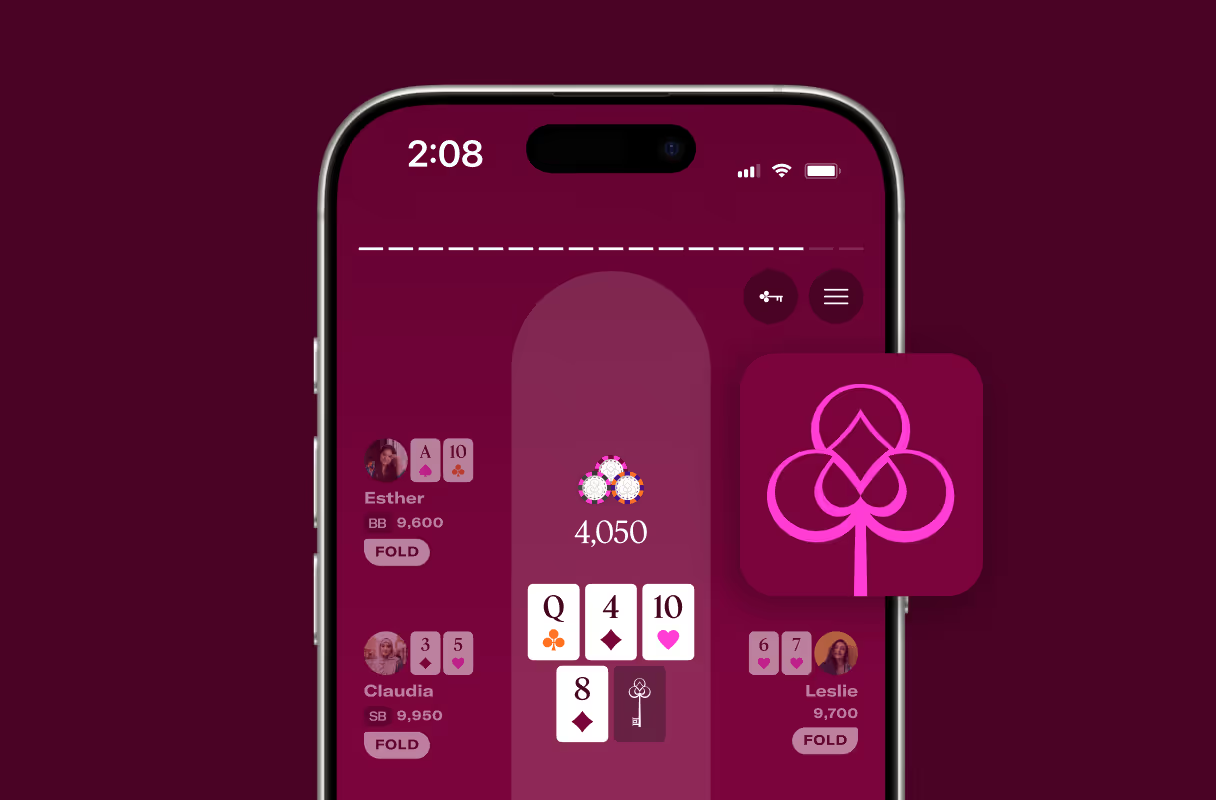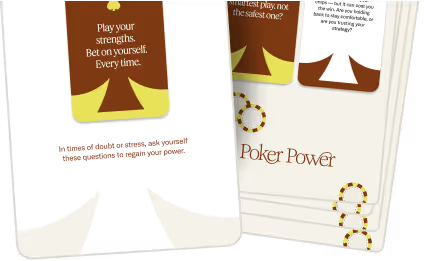BY TOM HUDDLESTON JR.
Featured on www.cnbc.com
Self-made billionaire Jenny Just has some simple advice to young women who want to succeed in business: Learn to play poker.
Just is the 54-year-old co-founder of financial firm PEAK6 Investments, which she launched with her husband in 1997 after working as an options trader in Chicago. She’s spent the past three decades learning her share of lessons about strategic thinking, risk management and confidence.
“I had to learn the hard way, [making] mistake after mistake after mistake,” she tells CNBC Make It. “I could have been learning things by sitting at the poker table and watching hands.”
The realization began when Just sat down to learn poker with her teen daughter, Juliette, a few years ago. The skills and strategy it took to win were familiar, she says.
“Hey, this looks like what I do every day,” she recalls thinking, adding that it was an “eye-opening” experience.

H/O: Poker Power
It paved the way for Just’s newest venture, Poker Power, a virtual workshop aimed at teaching poker to women of all ages. The game can foster the skills women need to advance their careers and succeed in the workplace, she says.
“If you come to one lesson, you learn how to play poker,” Just says. “If you come to more than one lesson, you’re going to start to learn these larger life skills and business skills.”
Four of those skills are particularly important, Just says:
Capital allocation
In poker, success doesn’t necessarily come from winning a single hand. Rather, you’ll need to decide when to allocate your funds toward a potentially winning hand and when to wait and take a risk later on in the game.
Simply put, playing poker can help you become more fluent in the language of money, which is important if you ever want a seat at the negotiating table, Just says.
Just’s daughter, Juliette, adds that before she started playing poker, she’d “really never been exposed to any sort of betting or capital allocation and managing assets.”
Women in Poker Power’s courses don’t bet with real money, Just notes. It’s a rule that goes toward the program’s goal to create a “fun, supportive, and safe-to-fail environment.” And with the low stakes, participants can practice their capital allocation without much risk — before transferring that skill to the real world.
Strategy
As you become comfortable reading your opponents, bluffing and predicting likely outcomes, you’ll work your way through three levels of strategizing, Just says.
In the first level, “where most recreational players compete,” you mostly focus on the cards in your hand and whether to raise on your opponents’ bets or fold, Just says.
Then, your perspective expands, she says: You think about what cards your opponents could potentially have, so you can analyze how likely you are to win.
“You start analyzing the probabilities of outcomes,” Just says, noting that this is a necessary skill for negotiating in business.
Lastly, you start asking yourself what cards your opponents might think you have.
This is “the realm of pro players and top negotiators,” Just says. “You’re practicing a complex, ever-changing thought process that gives you experience with how power and influence shift as new information is gathered.”
Reaching the third level correlates with career-focused leadership and negotiation skills, she adds.
“Like the best negotiators, the best storytellers at a poker table cleverly weave a narrative to apply pressure, to bluff and ultimately to win,” Just says.
Risk confidence
Thinking strategically is all about gathering information. The next step is building up the confidence to use that information to make calculated risks, Just says.
“It takes a tremendous amount of courage” for some women simply to sit down at a poker table for the first time, she notes. More than 120 million people in the world play poker, but only 10% of them are women, Power Poker estimates.
Building your comfort with risk-taking can be a process: Rather than jumping straight into taking huge risks, you can take smaller risks in lower-stakes situations for the learning experience.
″[That’s] why I like poker so much,” Just says.
Her advice to new players, or people starting new careers: Take “more risks, sooner.” Some of those risks will fail, and the lessons from those experiences will build over time.
“I like to talk about something called compound experience,” Just says. “The earlier I got those failures in, or those successes in, I learned and then those learnings piled on each other. So taking more risks sooner allows for more growth, and a wider perspective, sooner.”
Risk management
Once you’re comfortable taking risks, you’ll need to learn to manage the risks you take. If you decide your odds of winning a hand are quickly diminishing, you might want to cut bait instead of digging yourself into a deeper hole.
If you can remember which cards have been dealt, and you have an idea of which cards your opponent might have based on the bets they’ve placed, you can use some simple math to calculate the odds of getting a card that gives you a winning hand.
When your odds decrease from round to round, you might want to fold.
Just says she learned risk management as a young options trader in Chicago and found it useful in poker. But it’s a tough skill to crack, she says: People are easily tempted to recover their initial losses by doubling down on their first strategy instead of changing course.
That’s true in both arenas, she adds.
“When we started branching off [to launch PEAK6], we made a lot of mistakes. We had a lot of different areas that we tried different things in, but we stopped our losses very quickly,” she says. “That’s for sure what’s gotten us to where we are today.”





